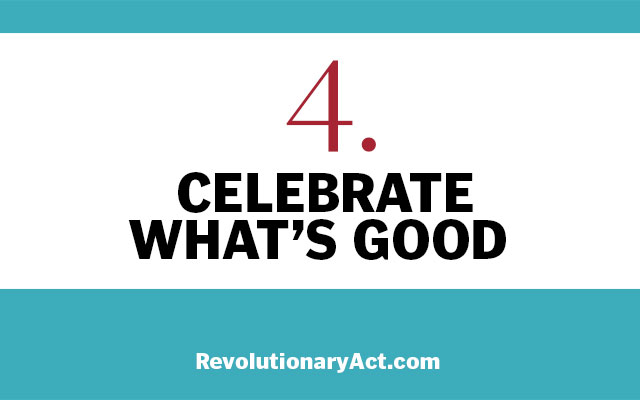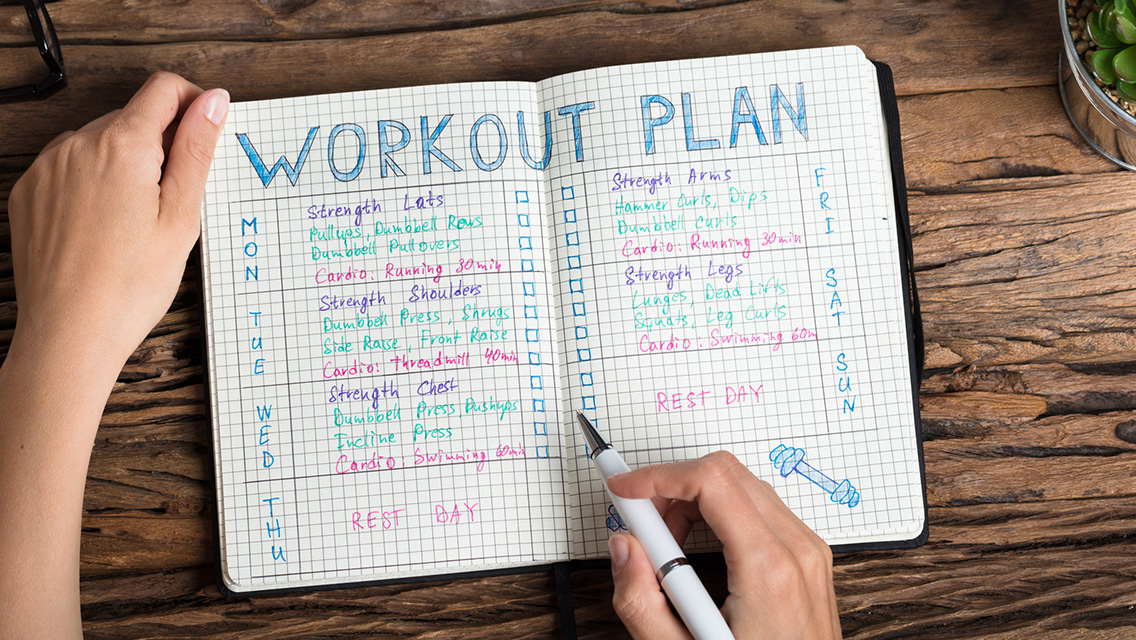Today, I am here to speak to you of happy things. And I’ll get to that in a second. But, first, allow me to share with you the memory of an unfortunate era during my teen years — an era when I was not so happy.
Back in those days, I was pre-occupied with being thin (which I thought would make me happy). So, taking my cue from the bikini-body magazines I relied upon for advice, I would dutifully get on the scale every morning. And based on the number I saw there, I would decide whether it was a good day or bad day.
A bad day (which could be determined by the presence of what I deemed a single “extra” pound) meant that I’d start out feeling lousy about myself, and I’d approach every meal with a mixed sense of dread and obsession. A bad day revolved around diet soda. And carrot sticks. And low-fat crackers. Which I would count out of the package before I ate them.
Bad days were miserable, but “good” days weren’t much better. Because if I’d somehow managed to drop a pound overnight, it was probably as the result of starving myself the previous day. And thus, on my so-called good days, I felt like crap.
I had no energy. I’d be hungry, shaky, beset by crazy food cravings, beleaguered, distracted, and depressive. By midafternoon I would “reward” myself for my suffering and stoicism by eating something I’d regret, and spend the rest of the night dreading getting back on the scale the next day.
Obviously, this hideous cycle was both mentally and physically unhealthy. It was also totally counterproductive. During this era, my weight rose steadily. The way I was living was killing my metabolism and spirit in one go.
More than a decade later, when I finally got over my weight obsessions and started focusing on my health and happiness instead, something interesting happened: As I let go of the scale as my measure of progress, I became aware of a much wider and richer array of feedback data.
For example, I noticed that when I ate proteins, healthy fats, and veggies for breakfast — rather than cereal and fruit or toast with jam — I had a lot more energy, could think more clearly, and didn’t get hungry (or even think about food) for hours on end.
When I started eating more whole foods and gave up the diet soda and low-fat crackers, my sugar-and-carb cravings subsided. My moods balanced out. My inflammatory symptoms subsided. My self-esteem climbed. Seeing my fridge stocked with whole foods also made me feel so much better about myself than surveying a sea of low-calorie, low-fat diet products.
When I started taking a whole-foods-based supergreens supplement, I got more regular. (I know, TMI, but as Revolutionary Act No. 35, “Move It Out,” emphasizes, these things matter!) My skin cleared up and the whites of my eyes looked brighter.
When I added lemon or cucumber or a mint leaf to my water, I found I was inclined to drink a lot more of it. And when I was fully hydrated, I felt less hungry and had less need for caffeine. My face looked less puffy. I slept better. My dark circles cleared up.
When I got outside and walked or ran in the morning, even for 15 minutes, I had more spring in my step, a more confident, positive attitude about my body, and a great deal more willingness to make healthy choices throughout the day.
When I started swinging a kettlebell, I discovered I really liked the feeling of moving against resistance — and that I could build serious muscle much faster than I had ever thought possible. I took perverse pleasure in my postworkout soreness, and in the ease with which I began bounding up stairs.
Little by little, as I kept experimenting with changes in my daily choices and routines, I found more and more to like about my results. The more I liked, the more I felt motivated to do. The effect was near miraculous.
Today (after 13 years as a health journalist), I know that even a single intense exercise session can alter the DNA in your fat and muscle cells. I know that within minutes, a healthy snack, drink, or meal can influence cell-level activity and blood-sugar levels. I know that within nanoseconds, the mere adjusting of a thought or attitude can affect your neural activity and brain chemistry.
Back then, I knew none of this. I just knew that my body and my life were changing for the better. Instead of watching the scale with mistrust, I began regarding my body with approval. Instead of feeling like I was stuck in a downward spiral, I began to sense new possibilities. I began to reach for goals that had nothing to do with my weight.
My weight, meanwhile, stabilized at a happy, healthy, lovely place where it has remained, with very little fluctuation, ever since.
So why am I telling you all this? I’m telling you this because I am convinced that one of the healthiest and most revolutionary things we can do is simply find something right about ourselves, and celebrate that.
If the scale is always telling you that you’re wrong (or if conventional fitness magazines are making you feel that way), it makes sense to look elsewhere for your feedback and inspiration.
Here are a few ways you can begin getting some more celebration-worthy encouragement now:
1) Give yourself some credit. You are reading this magazine. Maybe it’s giving you some new food for thought. Maybe it is confirming your commitment to creating and sustaining healthy change. Either way, great. That’s progress. You win!
2) Experiment with healthy choices. Do not make them about weight loss — just health. Eat some greens, take a walk around the block, knock back a glass of water you might otherwise have skipped. Notice what happens when you choose the healthy thing. You might feel a surge of pride in the moment. You might notice a subtle result later in the day. Just notice. Keep doing healthy experiments like that and see what happens.
3) Try a 10-day to two-week whole-food detox experience. Do not step on a scale the entire time. Instead, keep a journal, and take stock of the ways your body begins looking and feeling different after even 24 hours of nourishment and freedom from irritation and injury.
4) Load up on positive motivation. First, fire up our free “101 Revolutionary Ways to Be Healthy” app. Next, peruse some of the articles below. Start noticing the feel-good feedback your body-mind is already giving you, and realize how much more it might be willing to deliver with even a little encouragement.
Experiments like these are what helped me figure out that stewing in dissatisfaction is not (for me, at least) a recipe for sustainable progress. Finding something to celebrate will be a much more rewarding, redemptive, and happy way to go.
Revolutionary Reading
“Small Victories” — Not satisfied with your fitness results? Start observing these five stages of change and you may start seeing new progress.
“Lessons From a Life Coach” — A master life coach shares her four-step process for making change via deep self-exploration and inquiry.
“Resolution Workshop 2010: Action!” — Doable, small-scale shifts that net you big results — and meaningful progress toward your grander goals.
“Celebrate Your Fitness Success” — An unflinching inventory to help you see and better appreciate what you’ve already accomplished.




This Post Has 0 Comments